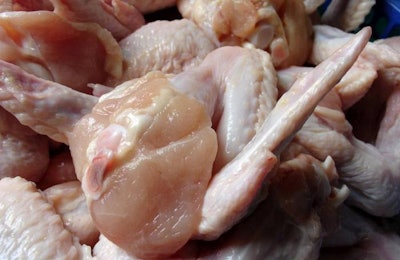
Ghana’s Food and Agriculture ministry is collaborating with private investors to construct poultry processing plants in hopes of helping the country become less reliant on imported chicken.
The move follows recent complaints by Ghana’s poultry farmers, who have been concerned about large volumes of frozen chicken imported from other countries. Since the early 2000s, Ghana's poultry sector has been experiencing financial troubles, and the industry’s poor fortunes have largely been attributed to those imports, reported Modern Ghana.
It has been estimated that only about 30 percent of the chicken consumed in the African country is produced and processed domestically. That figure has changed since 2016, when it was reported that about 42 percent of poultry meat consumed in Ghana is from domestic suppliers, with the remaining 58 percent are imported from the European Union and the United States.
Ghana currently imports about 150,000 metric tons of poultry meat on an annual basis, and the Ghana National Association of Poultry Farmers has expressed worries that if the situation does not change, it could cause even more harm to the domestic poultry industry.
Deputy Agriculture Minister George Oduro said the Ghanan ministry is engaging four investors to set up in Ghana to allow for local poultry processing. Oduro said proposed plans with those investors have been presented to bankers, and upon approval of those plans, poultry processing equipment will be installed.
The deputy minister also stated that the agriculture ministry has been in communications with a Czech company that will also be producing a million broilers annually.
Oduro also added that the agriculture ministry is aiming to improve the local availability of animal feed, with proceeds from the Planting for Food and Jobs program This, he said, is expected to reduce the cost of production for the poultry farmers in the nation.

















